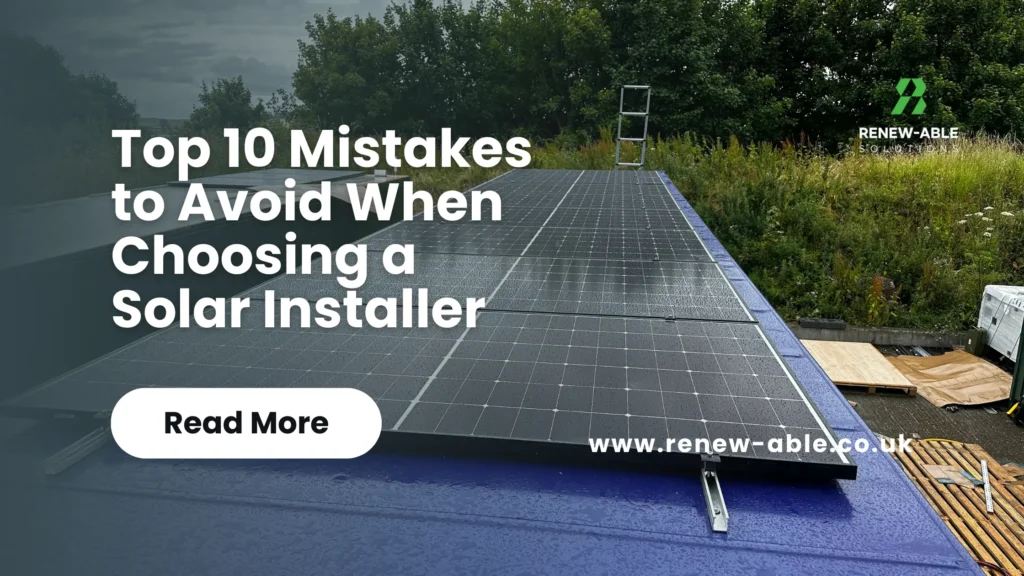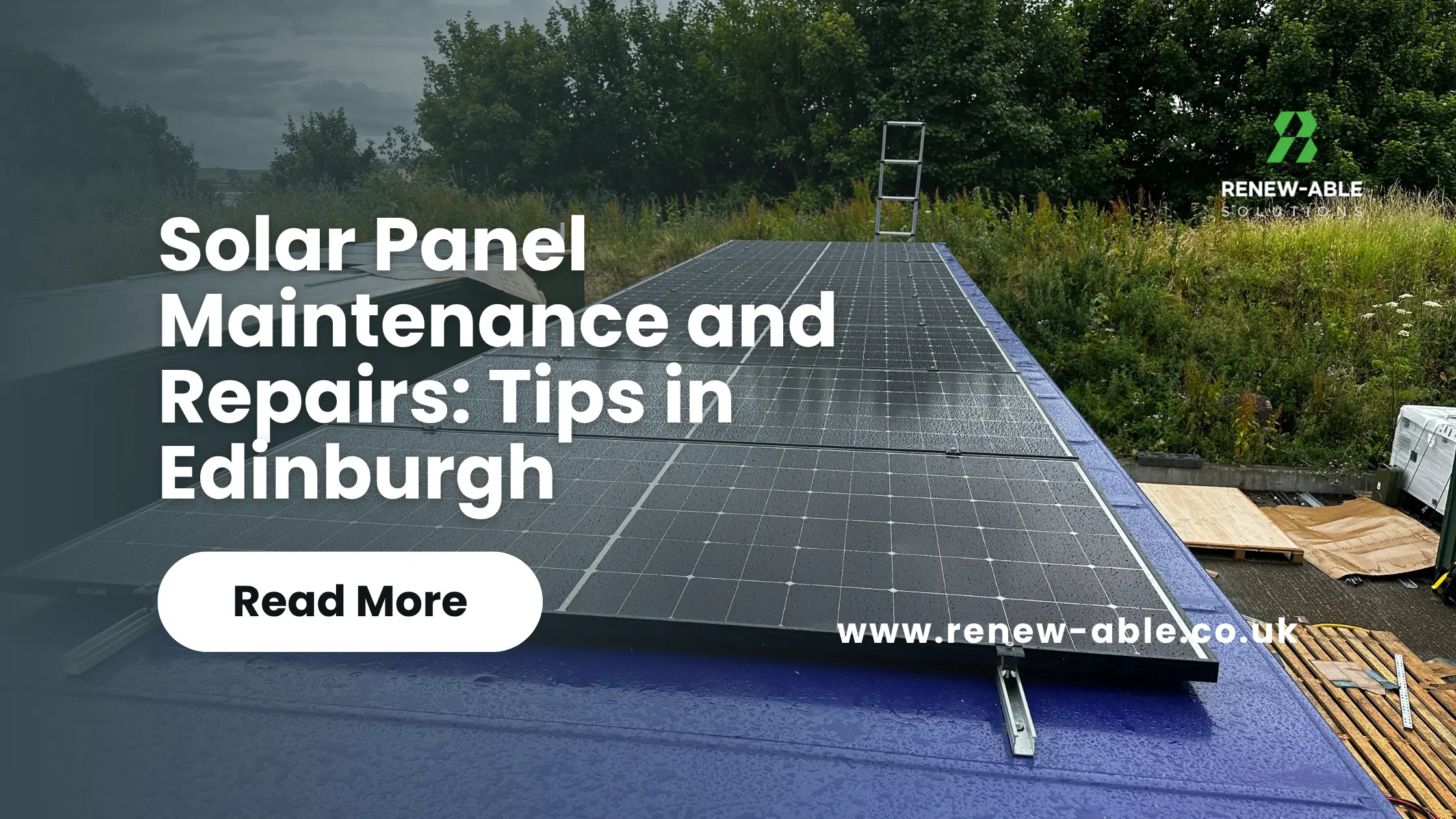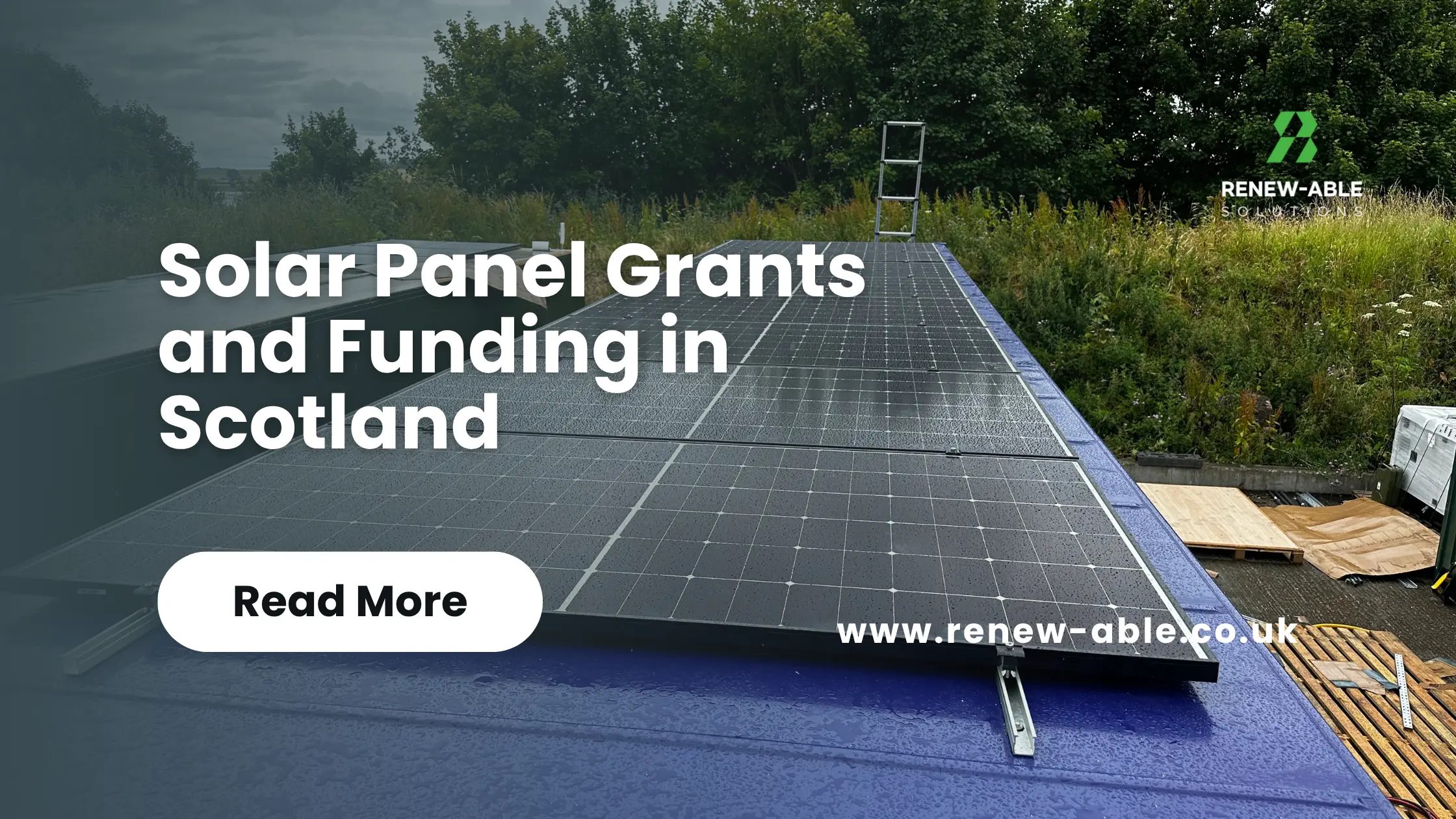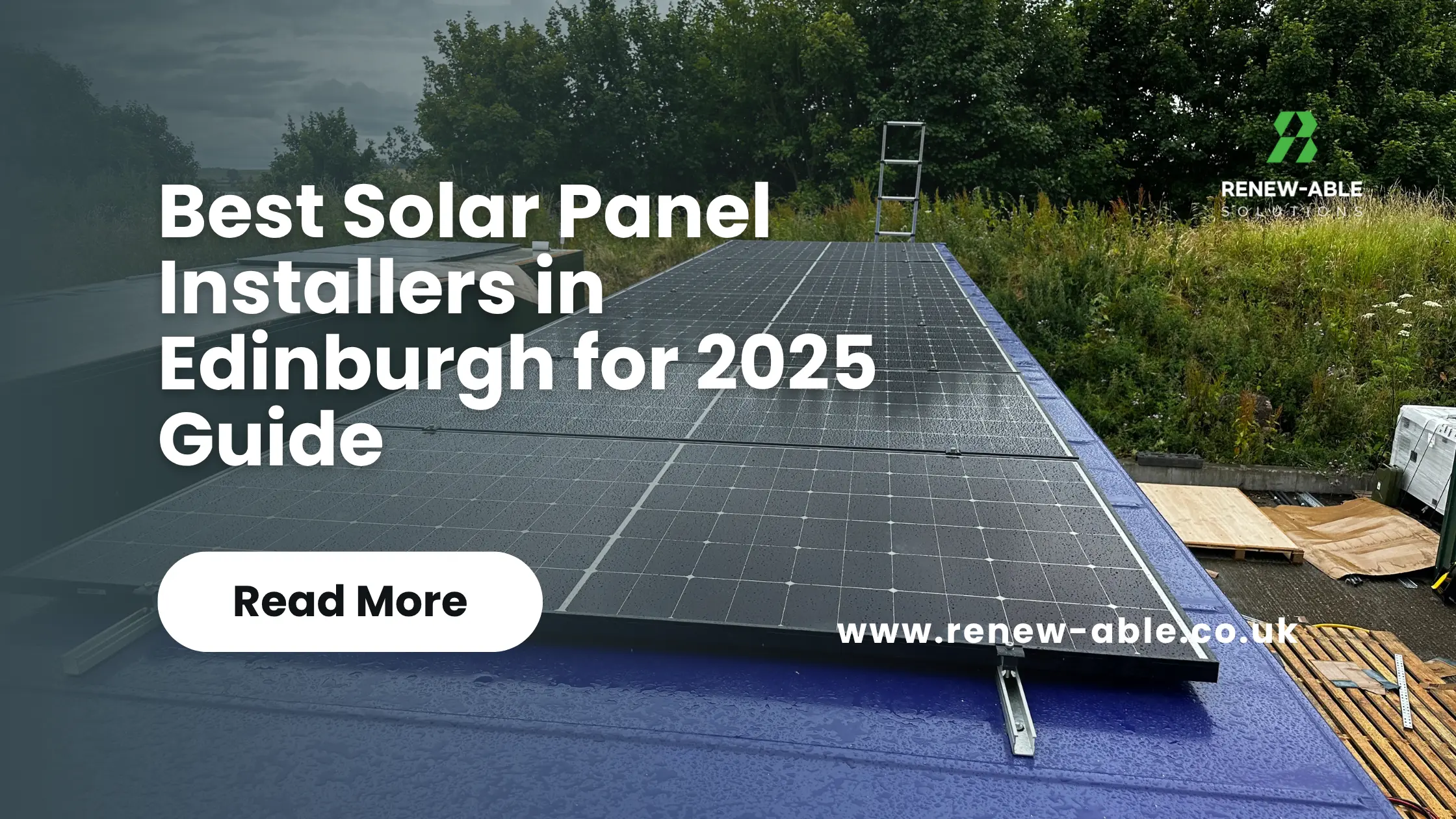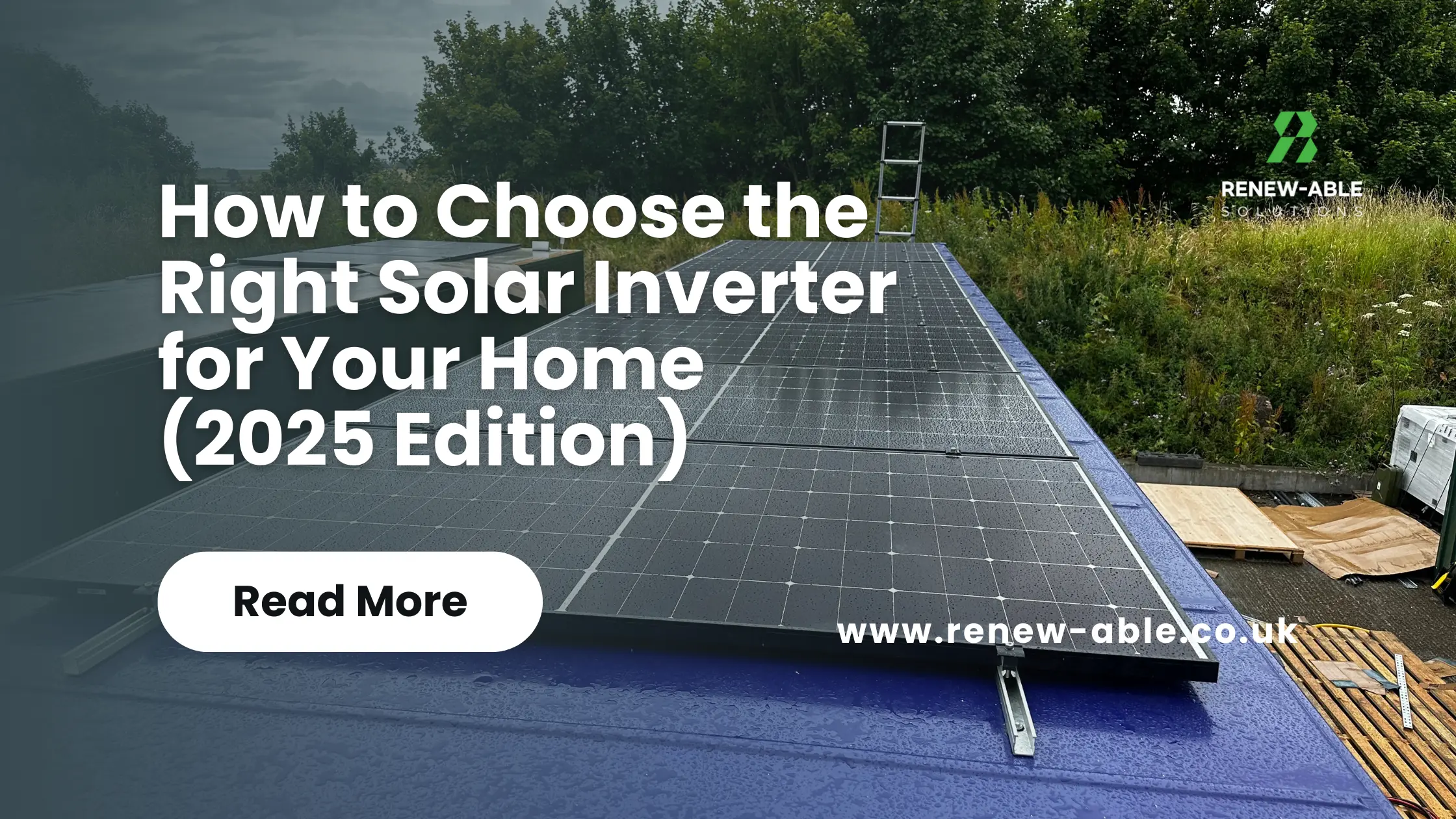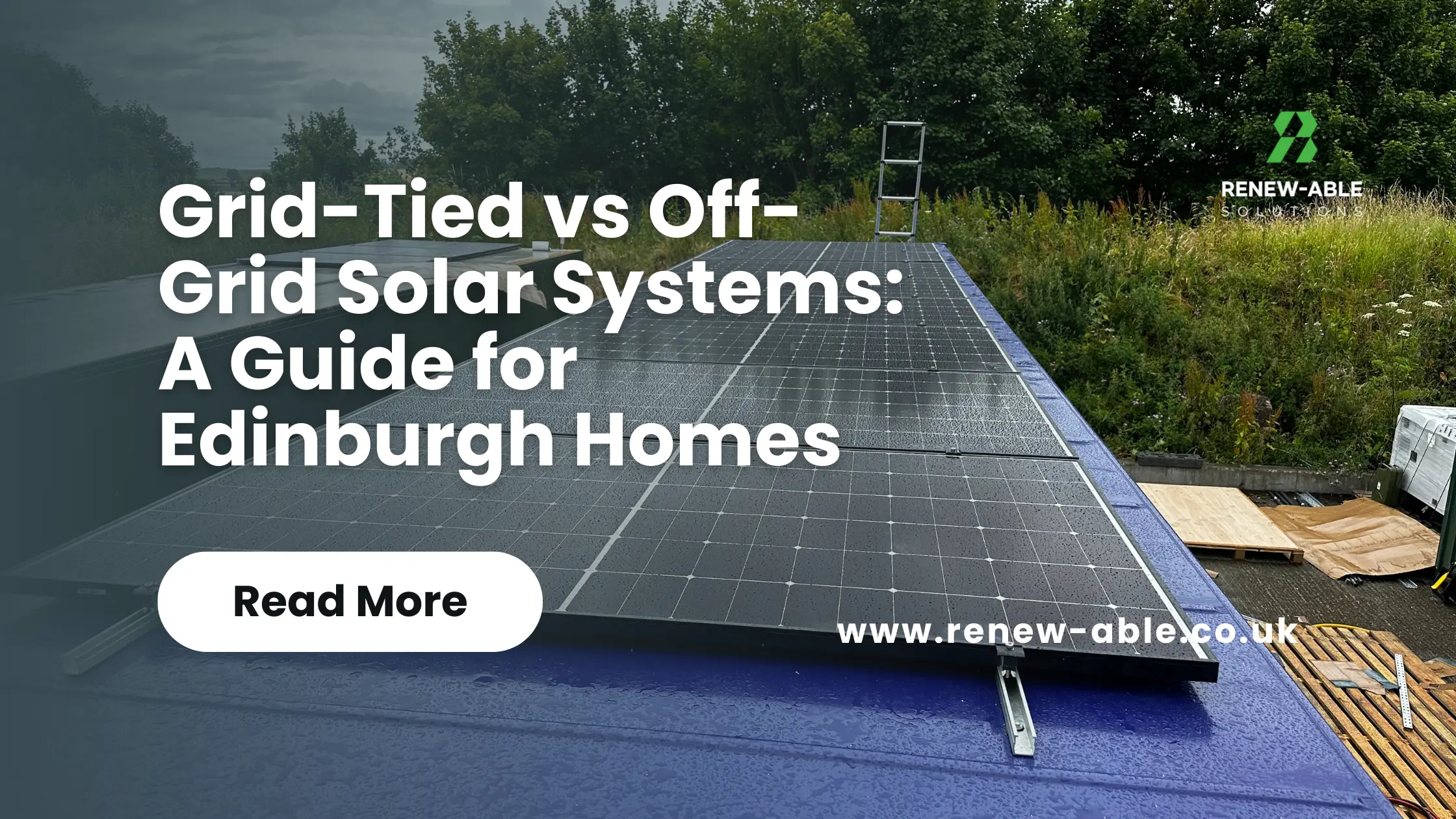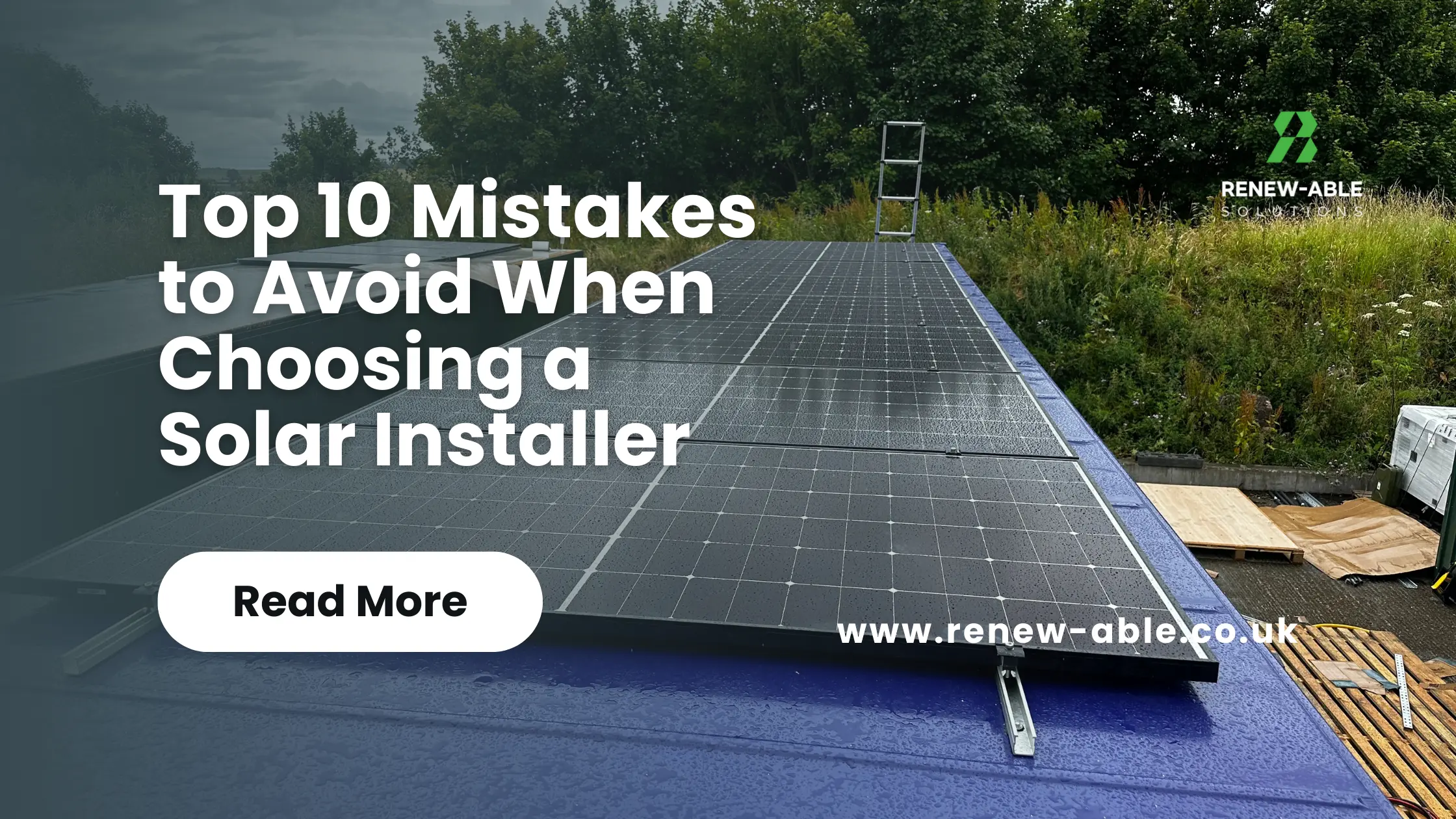The cost of electricity is skyrocketing, and now, in 2025, there are more than 1.7 million MCS-certified solar PV installations across the UK. Solar energy has become the most attractive long-term investment for households. But as solar demand increases, so does the risk of falling into costly traps with unqualified or careless installers.
If you are planning to go solar this year, here are the 10 most common mistakes to avoid when choosing a solar installer, along with expert tips to help you make a confident and informed decision.
Top 10 Mistakes When Choosing a Solar Installer
If you are worrying about ‘how do I choose a solar installer’, you are not alone, as many homeowners make costly mistakes during the process. Identify these mistakes and avoid them for the smooth solar power system installation process:
Overlooking MCS Certification
MCS (Microgeneration Certification Scheme) certification is non-negotiable, and you need to hire an MCS-certified solar panel installer to qualify for the Smart Export Guarantee (SEG). SEG only accepts energy exported from systems installed by MCS-certified installers, as it guarantees proper installation, compliance with regulations, and reliable performance.
If you ignore it, you’ll get:
- No eligibility for SEG payments
- Risk of poor installation quality
- Voided product warranties
- Inability to claim incentives
The way is to ask for the installer’s MCS number and verify it on the official MCS register. Don’t proceed without confirmation.
Neglecting Planning Consent Requirements
Many solar installations qualify as Permitted Development, but that’s not always the case. If your property is in a conservation area, is a listed building, or the panels protrude more than 200 mm from the roof surface, you will need planning permission from your local authority. If you commit the mistake of neglecting this:
- You may receive a planning enforcement notice
- Could face costly legal issues and forced removal
- Project delays of 6 to 8 weeks for retrospective approval
So, you should ask your solar PV installer for planning advice specific to your postcode. Then, check with your local planning office if unsure, and make sure proper permissions are obtained before installation begins.
Focusing Only on the Lowest Price
Those installers offering solar panel systems 20–30% below the average market price usually cut corners by using low-grade panels, subcontracted labour, or omitting warranties.
For your information, in the UK, an average 4 kW residential solar PV system costs between £5,500–£7,000. If you accept a low quote, it surely means little to no after-sales support or higher repair/replacement costs down the line.
The solution is, compare equipment quality, warranty duration, avoid cheap solar panel installation UK and ask for who installs (in-house team vs subcontractors). Then choose a balance between quality and affordability, not just the lowest bidder
Ignoring Warranties and Performance Guarantees
Solar panels are a long-term investment, and warranties are your safety net. A strong warranty can save you thousands in case of failure or degradation over time. If you overlook this factor, you may face unexpected repair or replacement costs. Consider:
- Panels: 25-year performance warranty (typically 80% output at 25 years)
- Product warranty: 10-12 years
- Inverter: 5-12 years
- Workmanship:5-10 years
So, find the best solar panel installers UK 2025 and make sure to review all warranty documentation, ensure it covers equipment and installation work, and ask who is responsible for warranty claims, the manufacturer or installer?
Skipping Customer Reviews and Local References
Online reviews and local references are your best insight into an installer’s reliability, communication, and aftercare. If you skip checking the factual information, you may have to face a lack of support, and it becomes hard to hold the team accountable post-install. So, you need to:
- Read reviews on Trustpilot, Google, and Which? Trusted Traders
- Ask for recent installations in your area
- Contact 2–3 past clients to ask about their experience
Top-rated 2025 solar PV installers include www.renew-able.co.uk.
Overlooking SEG and Incentive Expertise
Do you know the Smart Export Guarantee (SEG) pays you for excess energy you export back to the grid? Rates vary between 5p–8.5p per kWh, depending on the provider. If you do not discuss the SEG incentive with your installer, you may miss SEG registration deadlines and lose £30–£50 per quarter in unclaimed earnings. So, you need to:
- Choose an installer who submits SEG paperwork for you
- Ask them to explain the best SEG tariffs available
- Enquire about integrating a battery to maximise returns
Disregarding System Design and Shading Analysis
Even partial shading caused by trees, chimneys, or nearby buildings can reduce your system’s output by up to 30%. You are committing a big mistake if you choose an installer who doesn’t conduct a thorough shading analysis as part of the system design.
Poor planning and false assumptions about sunlight availability are among the common misconceptions about solar panels in the UK, and they can seriously impact your system’s efficiency. What you need to do is:
- Ensure your installer conducts a full shading analysis using LiDAR or infrared tools
- Opt for micro inverters or power optimisers to reduce shading losses
- Review your site report and ask how they designed the panel layout
Not Verifying Insurance and Liability Coverage
One of the most neglected but common mistakes is failing to check whether your solar installer carries proper insurance and liability coverage. Solar installation involves electrical work and structural modifications.
If something goes wrong, you have to face the consequences of risking invalidating your home insurance, and you may get no compensation if the property is damaged during installation. You should always:
- Ask for proof of public liability insurance (£10 million minimum recommended)
- Confirm they have the employer’s liability insurance
- Check policy dates and ensure coverage is current
Failing to Plan for Maintenance and Monitoring
Solar systems are low-maintenance, but not maintenance-free. Dust, debris, bird droppings, or faulty wiring can cut performance by 5–10% annually. Failing to plan for regular maintenance and monitoring is a common mistake that can quietly erode your solar system’s efficiency over time.
So, choose a reliable installer who guides how to monitor energy generation, spot early signs of issues, and schedule periodic inspections or cleaning every 1–2 years.
Skipping a Roof and Structural Assessment
Your roof’s age, slope, and structural integrity determine which system is safe to install. It’s your solar system installer’s responsibility to conduct a structural survey, and if he ignores it, it’s a poor installation warning sign and your solar investment could turn into a liability.
Installing panels on a weak or aging roof can lead to leaks, damage, or even collapse. You may face costly repairs. So, it is better to:
- Ask your installer for a detailed roof and structure assessment
- Ensure the system design is tailored to your specific roof type
- Get an engineer’s sign-off for long-term peace of mind
Final Thoughts
Finding a reputable solar installer is not challenging if you know what to look out for and which mistakes to avoid. After all, it is a matter of trust, performance, and long-term value. If you select an experienced, accredited installer, you can enjoy years of clean, low-cost energy without worries.
FAQs
What certifications should a UK solar installer have in 2025?
In 2025, every professional solar installer must be MCS-certified. You should also look for RECC (Renewable Energy Consumer Code) membership for consumer protection.
How can I avoid solar panel scams?
To avoid scams, always verify the MCS certification on the official register, get multiple quotes and avoid prices far below the market average, check reviews, avoid high-pressure sales tactics, and stick to well-reviewed, accredited UK solar companies with transparent contracts.
Do I need planning permission for solar panels?
Most homes don’t need planning permission due to Permitted Development Rights, but exceptions apply. You may need approval if:
- Your home is listed or in a conservation area
- Panels protrude more than 200mm
- You’re installing panels on a flat roof or an outbuilding

